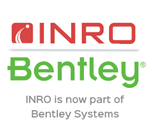Estimating major project benefits in an uncertain technological future
David Balfe, Caitlin McHugh & Jessica Tillotson
Veitch Lister Consulting, Queensland
This presentation was delivered at the 2021 Online Conference Series and until October 2022 is only available to registered delegates and Content Access Pass holders via Interchange. For information on accessing this and other presentations please review the Content Access Pass options.
ABSTRACT
Economic assessments of transport infrastructure projects aim to help guide decision makers toward wise investments. As technology changes the face of the transport industry, the future is increasingly unpredictable. How can we ensure our infrastructure choices will be appropriate in an uncertain transport future?
We worked with the Queensland Government on this project, which had three goals: To provide a framework for assessing uncertainty in project appraisal; to make this framework transparent and modular to support adoption and incremental improvement in future; and to pilot this framework on a major infrastructure project.
The project developed assumptions regarding the extent and impacts of technological changes, including Cooperative and Automated Vehicles, Mobility as a Service, Electric Vehicles, and Telecommuting, through a Delphi survey of subject matter experts. These assumptions were used to create probability functions describing the likely levels of technological impact by 2041. These probability functions and the processes to undertake uncertainty analysis form the uncertainty assessment framework.
We augmented transport modelling of a range of discrete scenarios with interpolation to estimate the relationships between technological impacts and the calculated benefits of the infrastructure project. Monte Carlo analysis was used to combine the probabilities of technological impacts with their estimated impact on project benefits to explore the likely benefits of the project in the range of possible technological futures.
We found a wide range of variability in calculated project benefits, and quantified this variability to understand the risk of both lower and higher project benefits being realised. This helped us understand which technologies are most important to assess when considering infrastructure investments.
Our hope is that broader adoption and refinement of the framework will improve its and value.
Author(s)
David Balfe | VLC
David Balfe has ten years’ experience in transport planning, in both State government roles and the private sector. He has experience in project management, public transit service design and policy, transport policy and planning, transport modelling, and data analysis.
As State Director, David is responsible for VLC’s consultancy services within Queensland. He manages a team of modellers, planners, and economists to deliver transport projects across a range of disciplines and clients.
David has particular skills in managing project teams including a diverse range of technical disciplines. He has experience managing projects spanning the technical disciplines of software development, model development, transport planning, transport modelling, economic assessment, policy development, and project appraisal.
Caitlin McHugh | VLC
Caitlin McHugh has over five years of experience working in transport advisory services in both local government and the private sector in transport modelling, transport planning, traffic engineering and project management. She has undertaken strategic transport modelling for several high profile road projects.
With a background in mathematics, her interest lies in the algorithms and mathematical models underlying transport models.
Caitlin has experience implementing VLCs Zenith model in both OmniTRANS and Emme. She also has experience in the use of GIS tools and various programming languages including MATLAB, Python and Ruby.
Jessica Tillotson | VLC
Jessica Tillotson is an engineer and economist with a background in research into future transport technologies. Key contributions to the field include the implementation of Queensland’s Electric Vehicle Strategy and project managing the rollout of the Tropical North Queensland Electric Vehicle Tourist Drive.
More recently, Jessica has delivered economic assessment for both the M1 Loganholme to Nerang and Coomera Connector and the M1 Daisy Hill to Logan Motorway (DH2LM) projects and is currently coordinating the development of the DH2LM Preliminary Evaluation report.









